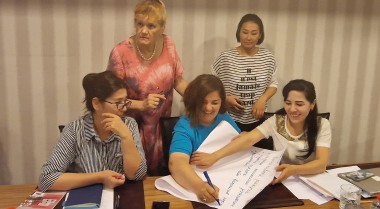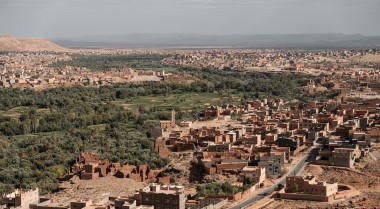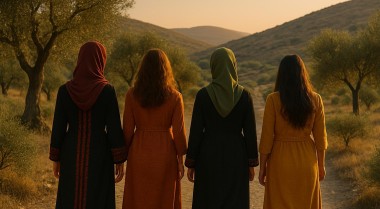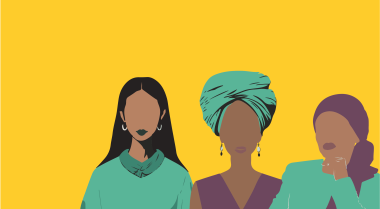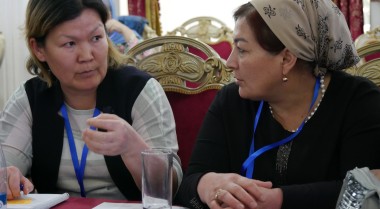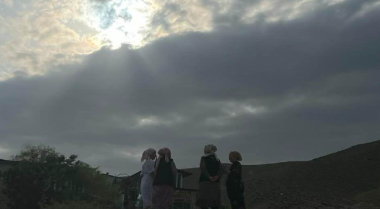
From Grassroots to High Tables
The Ferghana Valley, spanning Kyrgyzstan, Tajikistan, and Uzbekistan, is one of Central Asia’s most fragile regions. Long-standing disputes over land, borders, and resources escalated into armed conflict in September 2022, displacing thousands and leaving deep scars on border communities. Women bore the brunt of the 2022 clashes, facing displacement, loss of livelihoods, trauma, and ongoing exclusion from decision-making.
In March 2025, the presidents of the three countries signed the Treaty on the Junction Point of State Borders and the Khudjand Declaration on Eternal Friendship, marking a historic step toward regional cooperation. Yet, for people living in Batken (Kyrgyzstan), Sughd (Tajikistan), and Fergana (Uzbekistan), peace remains fragile. The process has been largely top-down, with little transparency or engagement of those most affected, particularly women. Yet, local women leaders build peace and resolve conflict by organising dialogues, supporting families, and fostering cross-border solidarity. What is missing is a bridge to carry their voices and insights into diplomacy at the local, national and regional levels.
The Project: Connecting Local Women and Regional Decision-Makers
That is why the Association of Scientific and Technical Intelligentsia (ASTI) in Tajikistan, together with partners Foundation for Tolerance International (FTI) in Kyrgyzstan and Istiqbolli Avlod (IA) in Uzbekistan, is working to amplify women’s leadership in formal peace-related dialogue processes between Kyrgyzstan and Tajikistan. This six-month project is financially supported by the United Nations Women’s Peace and Humanitarian Fund - Rapid Response Window (WPHF-RRW).
The project connects local women leaders to the Central Asia Women Leaders Dialogue (CAWLD), a regional platform chaired in 2025 by the Women’s Committee of Tajikistan. CAWLD brings together parliamentarians, government officials, businesswomen and civil society, creating a unique opportunity for local women peacebuilders to influence peace and security agendas.
From Experience to Action: Building on What Exists
The women at the heart of this project are not new to peacebuilding. Many have years of experience leading at the community level, while others represent local authorities who have seen firsthand the challenges of living along contested borders. Some were part of earlier RRW-supported projects led by FTI in 2023-2024, which opened unprecedented entry points for grassroots voices in high-level spaces. Together, they developed joint advocacy messages and presented them at the 2024 Bishkek Women Peace and Security Conference, where women’s voices from border areas reached national and regional decision-makers.
Building on that momentum, this project offers continuity, new strategies, and broader platforms, drawing on existing trust and knowledge to ensure women’s perspectives remain central in building sustainable peace.
Turning Grassroots Voices into Lasting Change
The project empowers women leaders from border areas with advocacy, communication, and trauma-sensitive peacebuilding skills, while connecting them directly to regional platforms where decisions are made. It creates a space for local consultations to capture community priorities and translate them into joint recommendations. These insights distil into a policy brief to guide high-level dialogues and influence the implementation of peace agreements. Finally, the project convenes cross-border events in Sughd and Batken, bringing women and local authorities together to build trust and co-design gender-responsive peacebuilding initiatives.
These efforts are critical because, despite political declarations making headway towards sustainable peace, these declarations are not enough. Especially in border communities, more concrete steps are needed to build sustainable peace. Women, who are most affected by conflict, remain underrepresented in decision-making and excluded from shaping the very peace processes that determine their future. By equipping them with tools, networks, and platforms to engage at regional levels, this project ensures their lived realities drive durable solutions.
Collective Regional Effort for Peace
Together with national women’s committees and regional authorities, ASTI, FTI, and AI are advancing a collective vision: one where grassroots women from border communities are active contributors to peace agreements. This project contributes to laying the groundwork for sustainable peace in Central Asia that reflects the realities and aspirations of its people. It fosters national and regional ownership by aligning with government initiatives such as the Central Asia Women Leaders Dialogue, while also amplifying community needs and perspectives.
About the UN Women’s Peace and Humanitarian Fund’s Rapid Response Window
The Rapid Response Window for Women’s Participation in Peace Processes and the Implementation of Peace Agreements is a mechanism under the United Nations Women's Peace and Humanitarian Fund (WPHF) that provides targeted, short-term support to increase women’s participation in peace processes and the implementation of peace agreements.
As a flexible financing tool, the RRW plays a vital role in enabling agile, women-led peacebuilding initiatives - helping local women and young women engage meaningfully across different levels and with a range of stakeholders. Its adaptability is essential for responding to crises, preventing conflict, and seizing critical peacebuilding opportunities in rapidly changing contexts.
